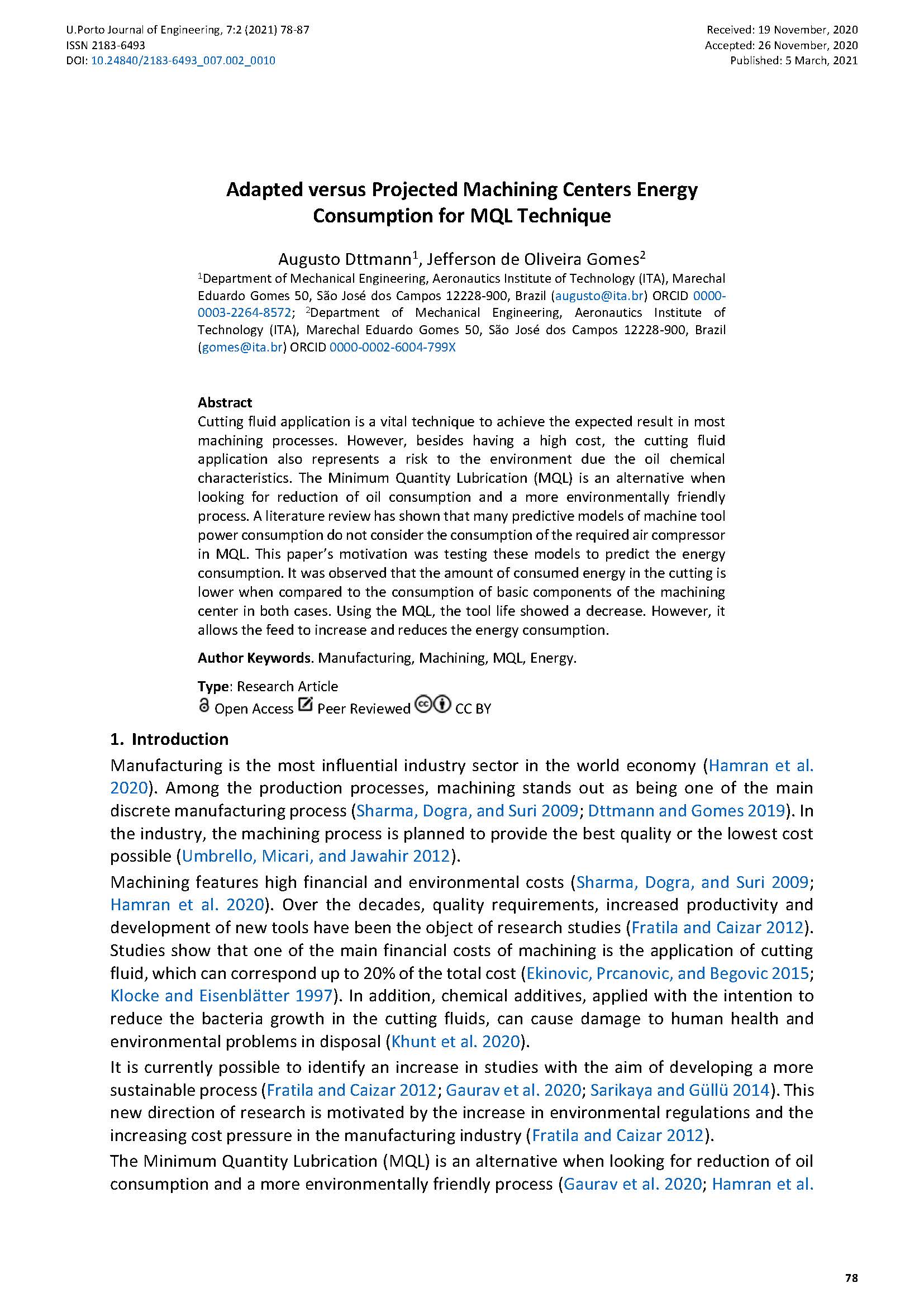Adapted versus Projected Machining Centers Energy Consumption for MQL Technique
Main Article Content
Abstract
Cutting fluid application is a vital technique to achieve the expected result in most machining processes. However, besides having a high cost, the cutting fluid application also represents a risk to the environment due the oil chemical characteristics. The Minimum Quantity Lubrication (MQL) is an alternative when looking for reduction of oil consumption and a more environmentally friendly process. A literature review has shown that many predictive models of machine tool power consumption do not consider the consumption of the required air compressor in MQL. This paper’s motivation was testing these models to predict the energy consumption. It was observed that the amount of consumed energy in the cutting is lower when compared to the consumption of basic components of the machining center in both cases. Using the MQL, the tool life showed a decrease. However, it allows the feed to increase and reduces the energy consumption.
Downloads
Article Details

This work is licensed under a Creative Commons Attribution 4.0 International License.
Authors who publish with this journal agree to the following terms:
- Authors retain copyright and grant the journal right of first publication with the work simultaneously licensed under a Creative Commons Attribution License that allows others to share the work with an acknowledgement of the work's authorship and initial publication in this journal.
- Authors grant the journal the rights to provide the article in all forms and media so the article can be used on the latest technology even after publication and ensure its long-term preservation.
- Authors are able to enter into separate, additional contractual arrangements for the non-exclusive distribution of the journal's published version of the work (e.g., post it to an institutional repository or publish it in a book), with an acknowledgement of its initial publication in this journal.
- Authors are permitted and encouraged to post their work online (e.g., in institutional repositories or on their website) prior to and during the submission process, as it can lead to productive exchanges, as well as earlier and greater citation of published work (See The Effect of Open Access).

